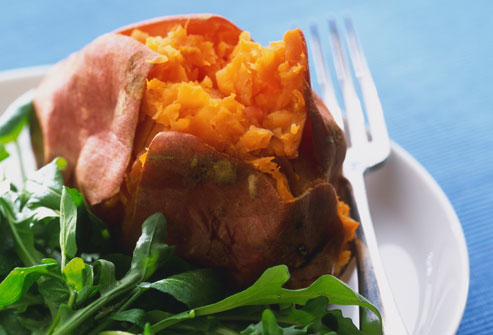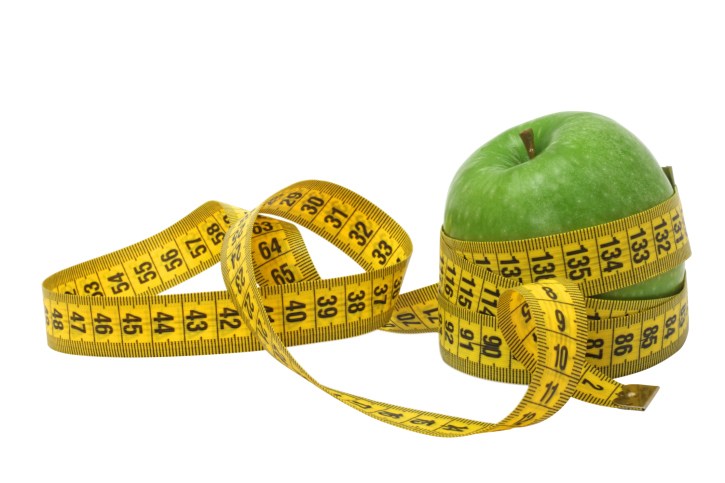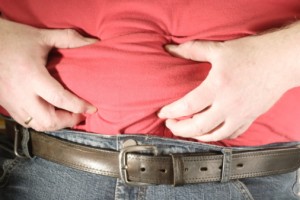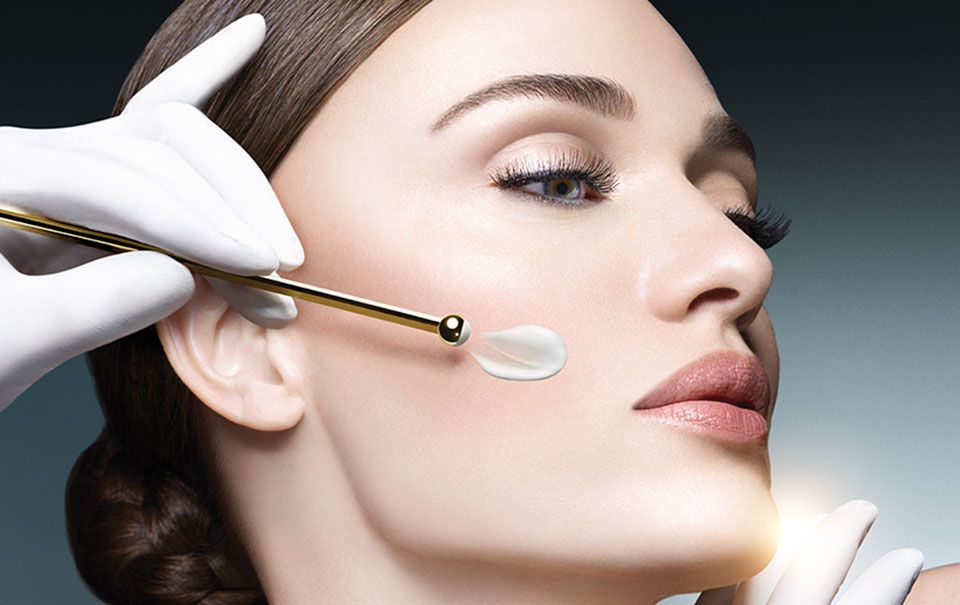It Worked For Me: I Lost Weight By Giving Up Carbs
Since I was 15 years old, I've stepped on the scale every morning and vowed to lose five or 10 pounds. After the births of each of my four children, it became thirty pounds. But I've never stayed on a diet for more than a few weeks in my whole life.
Then a year ago, I set about eliminating vegetable oils from my diet, and radically reducing my intake of carbohydrates — especially sugars. My diet became higher in protein and fat, because if you don't eat carbs, you naturally eat foods higher in the other macronutrients. Here's what happened:
1. I lost eight pounds and didn't gain it back
I've always exercised regularly, even vigorously, but I still had trouble losing weight and keeping it off. I'd diet, lose five pounds, then slowly gain it back. I always blamed the diet. In the last year, I've lost eight pounds and not gained it back. If I put a couple pounds back on, I can take it off again by sticking to a low-carb regime, which has been surprisingly easy.
Giving up carbs isn't a diet; it's a new way of eating that at the age of 48, finally helped me stabilize my weight without feeling deprived.
2. My cholesterol ratios improved.
We've all been told that high-protein, low-carb diets are bad for our hearts. I believed it, too. So when I embarked on this new way of eating, I was careful to monitor my cholesterol ratios with regular blood work. My last blood test measured HDL to total cholesterol at .44, and triglycerides to HDL at .6. My already healthy ratios had improved considerably with a low-carb, high protein diet.
3. My digestion problems resolved.
I've always struggled with digestion problems like bloating, gas and constipation. To combat these problems, I've loaded up on fiber and sometimes taken stool softeners, Metamucil and Miralax. All that changed when I gave up carbs.
Now, I eat grains rarely, so the only fiber I get is from vegetables and limited fruit. Yet I no longer get gas and bloating, and I no longer need fiber supplements. Much of this may be the result of reducing gluten along with carbs, although I haven't been religious about eliminating gluten, and still enjoy a beer or a slice of bread now and then.
4. I stopped feeling hungry.
My habitual breakfast before I gave up carbs was a bowl of high-fiber, whole-grain, low-sugar, low-fat, low-calorie cereal with skim milk. I thought this was what my body needed, but I'd be starving just a couple hours later.
For the last year, my breakfast has been two fried eggs and coffee with half and half or full cream. This keeps me sated until my cobb salad at lunch. A piece of cheese and some celery in the afternoon helps me stay full until dinner.
5. I no longer crave sweets.
I used to wake up every morning and go to bed at night, craving something sweet. But I've noticed that as my body has become accustomed to a low-carb, low-sugar diet, these cravings have been reduced. A small piece of dark chocolate after dinner satisfies my sweet tooth.
6. My hair started growing faster.
A couple months before I left on an extensive book tour for my first novel, I had a bad haircut — and it wound up much shorter than I wanted.
But by the time my book tour rolled around, I noticed that my hair had almost completely grown out. A strand of hair is made up mostly of protein, and it needs protein to grow. My high-protein diet has made my hair healthier, and healthy hair grows faster.
7. My alcohol tolerance and intake dropped dramatically.
I've always tried to keep an eye on my alcohol intake, but not always successfully. Willpower alone didn't always work, but what has worked is my new way of eating. As soon as I lowered my carb intake, I noticed that my alcohol tolerance dropped dramatically. After a couple of drinks, I was not only more intoxicated than I wanted to be, I also started getting hangovers.
Now when I do overindulge, I pay the price, so I do it much less frequently. Drinking alcohol also knocks our bodies out of a fat-burning state, so it interferes with weight loss more than can be accounted for by the calories in alcohol alone.
8. I stopped counting calories and carbs.
In my long life of dieting, I've religiously counted fat and calories. When I started reducing carbs and increasing protein, I switched to counting carbs, shooting for below fifty a day. Once I'd done this for a month or so, I found that counting was no longer necessary.
I now have a good intuitive sense of which foods are high in carbs, especially sugar, and I try my best to avoid those foods. I'll check a label now and then if I'm trying something new in a package, but mostly I've stopped counting. It's been a huge surprise to learn that the way Americans have been told to eat for decades is not the way we should eat; there is a healthier alternative that doesn't feel like deprivation at all.
Photo Credit: Shutterstock
-
Burn Fat Fast With The Unique 3 X 3 Training Routine
More and more people are realizing the many benefits of weight liftin
-
Swollen lymph nodes behind the ear causes, symptoms, and home remedies
Swollen lymph nodes behind the ear can be a result of many cau
-
Taking Responsibility To Lose Weight Is As Easy As 1, 2, 3
How many times do you see or hear commercials advertising the Lates
-
Adopt Biggest Loser Weight Loss Ways to Melt Fat Away
Weight Management is one of the toughest managing areas where human
-
Are You Presently Looking For A New Strategy To Lose Weight?
When it comes to weight loss, using with the latest trends may b
-
You Can Easily Lose 10 Pounds by Biking
So you want to lose weight. All of us do
- DON'T MISS
- Chris “Mean” Green’s Lose The Gut, Keep the Butt Fat-Burning Leg-Shaping Workout
- 17 Fat Burning Foods – Eat Lots And Lose Fast !
- How To Lose 10 Pounds Quickly
- Weight Loss Success - 6 Quick Tips For Lasting Change
- A Side Dish Called Desire
- The Perfect Weight-Loss Romance: Diet Meets Exercise
- The South Beach Diet Summarized
- Effective natural remedies, prevention, lifestyle changes and diet for diabetes
- Use Your Bodys Natural Hormones For Permanent Weight Loss
- Lose Those Holiday Pounds With These Useful Tips




